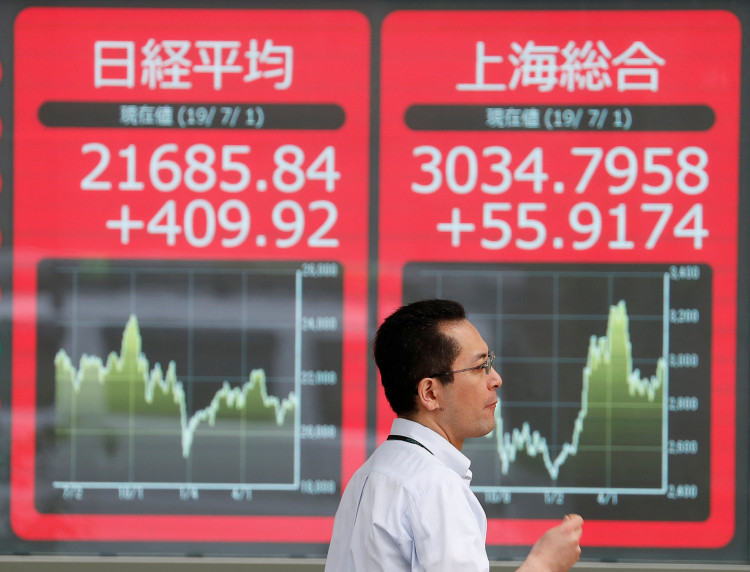Asian-Pacific stocks closed lower on Monday morning following news of China's economic growth slowdown. The world's most populous nation posted economic expansion of only 6.2 percent, accounting for the country's slowest rate yet in 27 years.
According to CNBC, stocks in mainland China dropped in morning trade as Asian shares reacted to the news. The Shanghai composite declined by 0.52 percent while the Shenzhen composite dropped by 0.359 percent.
In Australia, the S&P/ASX 200 index dropped by 0.52 percent, along with multiple industries. South Korean index Kospi slipped 0.13 percent, and Hong Kong's Hang Seng index falling by 0.45 percent.
Probably the biggest loss was that of fortune manager AMP, with the stocks falling 13 percent face first amid news that its wealth protection and life insurance business sale was to be held off in the meantime.
Economists believe global stock markets, especially Asian shares, are panicking over the news that China's second quarter 2019 growth slowed in its weakest figures yet over the last 27 years.
Aside from China's apparent slowdown, stock markets around the world are also displaying signs of unease as many economic analysts are expecting the U.S. Federal Reserve to push through with plans to cut interest rates this month.
The Chinese statistics bureau said shortly after the release of the country's gross domestic product (GDP) for Q2 2019 that there are external uncertainties affecting China's growth. On the other hand, the government is working to stabilize the economy.
Chief Investment Officer of assets solutions at Eastspring Investments, Colin Graham, noted that despite the multiple issues that China is faced with, including the trade war with the United States, the People's Bank of China can still inject fiscal stimulus to pump up the economy.
While the slowdown will happen due to the ongoing trade tensions, the central bank can find ways to "make sure the economy doesn't slow too quickly," Graham pointed out. His comments came amid data indicating that June exports declined as Beijing continues to deal with U.S. President Donald Trump's tariffs.
Despite the bad news about China's economic decline, there were positive points from the statistics office's report. From 5.0 percent in May, industrial output saw a hike of 6.3 percent in June.
The fixed assets investment sector also increased by 0.2 percent from the data compiled from January to May. The slight improvements are seen by some analysts as a ray of hope to help encourage stock markets and investors.
The Chinese government is expected to make a move in the coming months to help stimulate growth.





